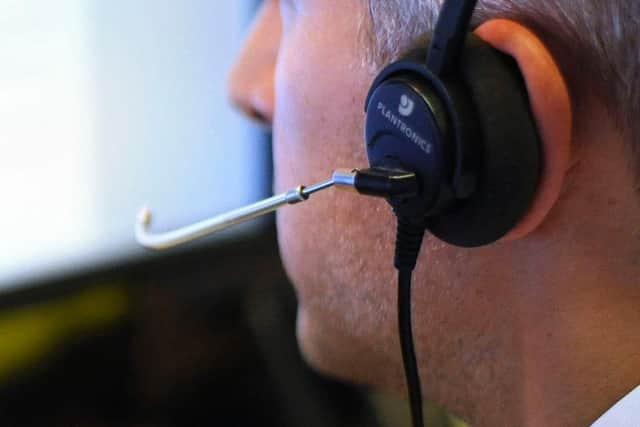More than 10,000 reports of coronavirus symptoms made to NHS 111 service in Calderdale
and live on Freeview channel 276
Total calls to the NHS 111 service in Yorkshire and the Humber dropped last month, however, as health think tank the Nuffield Trust expressed concerns those who need urgent treatment may be put off seeking help.
NHS England data shows 10,974 occasions when someone in the NHS Calderdale CCG area logged possible Covid-19 symptoms from March 18 to May 14.


Advertisement
Hide AdAdvertisement
Hide AdThe vast majority of these (81%) were through NHS 111 online assessments, with the remaining 19% over the phone.
Across England, there were more than 3 million reports of potential coronavirus through 111 services over the two-month period.
In Calderdale more than half of these (57%) came in just two weeks in March, with only 8% reported in the first two weeks of May.
Separate figures show the Yorkshire and the Humber 111 helpline received a total of 175,235 calls in April.
Advertisement
Hide AdAdvertisement
Hide AdThis was 43% less than it did in March, when there were 308,185.
Sarah Scobie, the Nuffield Trust's deputy director of research, said the 111 tool was "essential" to keep patients with suspected Covid-19 symptoms safe, and those who seek advice on other conditions.
She said: "This month's data suggests that the NHS 111 service is less in demand this month, and better able to take the pressure off frontline services.
"A high number of NHS 111 calls and the fall in hospital attendances suggest that people are still making careful choices about going to hospitals.
Advertisement
Hide AdAdvertisement
Hide Ad"There are now legitimate concerns that those who do require urgent medical treatment may be put off from seeking help due to fear of infection or a desire to reduce pressure on overstretched health and services, despite some reassurances from the NHS that these services are still open."
Of the calls taken last month, 7% were abandoned by callers kept waiting for 30 seconds or more.
This was an improvement on March, when 28% were abandoned, but a rise on the 1% from last April.
The Health Foundation said the data shows that many people's needs may have gone unmet during the pandemic, while others' conditions may have become worse.
Advertisement
Hide AdAdvertisement
Hide AdSarah Deeny, assistant director of data analytics, added: "As they begin to resume core health services, it is vital that Government and the NHS understand the full extent of people’s unmet health needs."
Professor Stephen Powis, NHS medical director, said the 111 service performed strongly in April, rebounding from the pressure it faced in March.
He said: "A&E attendances were sharply down, but the majority of these reductions were for lower risk conditions.
"Urgent cancer referrals are now picking back up – having doubled over the past three weeks – and the NHS has launched a public information campaign reminding the people of the importance of seeking care for urgent and emergency conditions.”